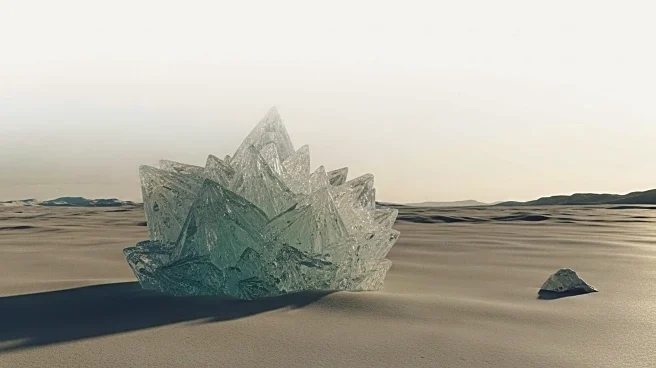What is the story about?
What's Happening?
A review of geoengineering methods proposed for cooling polar regions has concluded that they are impractical and unlikely to work. The study assessed five main ideas, including underwater curtains and reflective particles, and found them to be flawed and potentially harmful. The researchers argue that these proposals distract from the urgent need to decarbonize and address the root causes of climate change. The analysis highlights the environmental risks, high costs, and governance challenges associated with these geoengineering techniques.
Why It's Important?
The study's findings challenge the viability of geoengineering as a solution to climate change, particularly in polar regions where warming is most pronounced. It suggests that these interventions could cause more harm than good, potentially leading to environmental damage and geopolitical tensions. This could shift the focus of climate policy towards emission reduction and sustainable practices, rather than relying on untested technological fixes. The findings emphasize the importance of addressing the root causes of climate change rather than its symptoms.
What's Next?
The researchers advocate for prioritizing emission reduction and fundamental research in polar regions. They suggest that further exploration of geoengineering techniques may not be a productive use of resources. The findings may influence policymakers and researchers to reconsider the role of geoengineering in climate strategy and foster discussions on its ethical implications.
Beyond the Headlines
The governance challenges of geoengineering are significant, as deploying such techniques in international waters could lead to conflicts over jurisdiction and accountability. The study highlights the risk of creating false hopes that geoengineering could be a quick fix for climate change, potentially delaying necessary actions to reduce emissions. It also raises ethical concerns about experimenting with the planet's climate system.
















